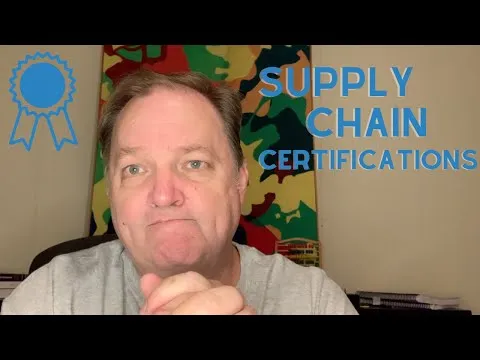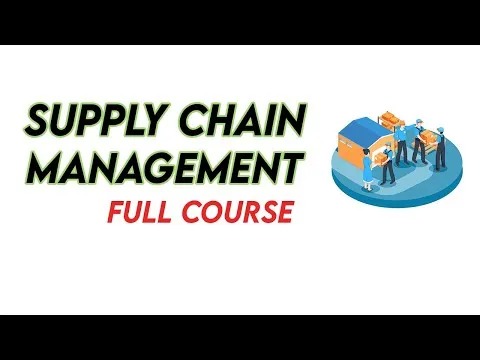
Procurement & Sourcing Introduction 
This Global Procurement and Sourcing Specialization provides an introduction to the fundamentals of procurement and sourcing. Through a series of courses, learners will gain an understanding of the key concepts and processes related to the field, including supplier selection, contract management, and risk management. ▼
ADVERTISEMENT
Course Feature
![]() Cost:
Cost:
Free
![]() Provider:
Provider:
Coursera
![]() Certificate:
Certificate:
Paid Certification
![]() Language:
Language:
English
![]() Start Date:
Start Date:
3rd Jul, 2023
Course Overview
❗The content presented here is sourced directly from Coursera platform. For comprehensive course details, including enrollment information, simply click on the 'Go to class' link on our website.
Updated in [March 06th, 2023]
The Global Procurement and Sourcing Specialization introduces students to the fundamentals of procurement and sourcing. This course provides an overview of the specialization and its courses, as well as an introduction to the current challenges facing procurement and sourcing professionals. The instructor will provide a biography and discuss who should take the course and the flow of the course.
Students will then have the opportunity to read ten current articles on procurement and sourcing, ranging from what is procurement to how to collaborate with suppliers. This knowledge will form the foundation for later courses on how to use tools, processes and improve skills to address many of these opportunities. A brief assessment (true/false) will be given to test the student's knowledge gained from the articles.
[Applications]
Upon completion of this course, students will have a better understanding of the current challenges facing procurement and sourcing professionals and will be able to apply the knowledge gained to their own procurement and sourcing activities. Suggestions for application of this course include: researching current trends in procurement and sourcing, developing strategies to address current challenges, and collaborating with suppliers to improve procurement and sourcing processes.
[Career Paths]
1. Procurement Manager: A Procurement Manager is responsible for overseeing the procurement process, from researching and selecting suppliers to negotiating contracts and managing supplier relationships. This role is becoming increasingly important as companies look to optimize their supply chain and reduce costs. The role is also becoming more complex as companies look to source from a global market and manage a diverse range of suppliers.
2. Sourcing Analyst: A Sourcing Analyst is responsible for researching and analyzing potential suppliers, negotiating contracts, and managing supplier relationships. This role is becoming increasingly important as companies look to optimize their supply chain and reduce costs. The role is also becoming more complex as companies look to source from a global market and manage a diverse range of suppliers.
3. Supply Chain Manager: A Supply Chain Manager is responsible for overseeing the entire supply chain process, from sourcing and procurement to logistics and distribution. This role is becoming increasingly important as companies look to optimize their supply chain and reduce costs. The role is also becoming more complex as companies look to source from a global market and manage a diverse range of suppliers.
4. Logistics Manager: A Logistics Manager is responsible for overseeing the logistics process, from transportation and warehousing to inventory management and customer service. This role is becoming increasingly important as companies look to optimize their supply chain and reduce costs. The role is also becoming more complex as companies look to source from a global market and manage a diverse range of suppliers.
[Education Paths]
Recommended Degree Paths:
1. Bachelor of Science in Supply Chain Management: This degree program provides students with a comprehensive understanding of the supply chain process, from procurement and sourcing to logistics and distribution. Students learn how to manage the entire supply chain process, from sourcing and procurement to logistics and distribution. They also gain an understanding of the latest trends in supply chain management, such as sustainability, technology, and global sourcing.
2. Master of Science in Supply Chain Management: This degree program provides students with an advanced understanding of the supply chain process, from procurement and sourcing to logistics and distribution. Students learn how to manage the entire supply chain process, from sourcing and procurement to logistics and distribution. They also gain an understanding of the latest trends in supply chain management, such as sustainability, technology, and global sourcing.
3. Master of Business Administration in Supply Chain Management: This degree program provides students with a comprehensive understanding of the supply chain process, from procurement and sourcing to logistics and distribution. Students learn how to manage the entire supply chain process, from sourcing and procurement to logistics and distribution. They also gain an understanding of the latest trends in supply chain management, such as sustainability, technology, and global sourcing.
4. Doctor of Philosophy in Supply Chain Management: This degree program provides students with an in-depth understanding of the supply chain process, from procurement and sourcing to logistics and distribution. Students learn how to manage the entire supply chain process, from sourcing and procurement to logistics and distribution. They also gain an understanding of the latest trends in supply chain management, such as sustainability, technology, and global sourcing.
Developing Trends:
1. Automation: Automation is becoming increasingly important in the supply chain process, as it can help reduce costs and improve efficiency. Automation can be used to streamline processes, such as procurement and sourcing, logistics and distribution, and inventory management.
2. Sustainability: Sustainability is becoming increasingly important in the supply chain process, as companies are looking to reduce their environmental impact. Companies are looking for ways to reduce their carbon footprint, such as using renewable energy sources and reducing waste.
3. Technology: Technology is becoming increasingly important in the supply chain process, as it can help improve efficiency and reduce costs. Companies are looking for ways to use technology to improve their supply chain processes, such as using artificial intelligence and machine learning to optimize processes.
4. Global Sourcing: Global sourcing is becoming increasingly important in the supply chain process, as companies are looking to source materials and products from around the world. Companies are looking for ways to source materials and products from different countries, such as using global sourcing platforms and leveraging global supply chains.
Pros & Cons

Comprehensive and easy to digest

Engaging and interesting

Well worth time

Easy and important to understand

Basic procurement knowledge

Little experience in procurement

Not exposed to other parts of procurement

Depth of readings manageable
Course Provider

Provider Coursera's Stats at AZClass
This Global Procurement and Procurement specialization provides an introduction to the fundamentals of procurement and procurement. Through a series of courses, participants will gain an understanding of the current challenges facing procurement and procurement professionals through this course. They can learn about different aspects of sourcing and sourcing, such as what it is, how to work with suppliers, and how to use tools and processes to address these challenges. Learners can also learn how to improve their skills in this field and gain knowledge from the ten latest articles provided. Finally, learners can test their knowledge with a short assessment provided.
Discussion and Reviews
0.0 (Based on 0 reviews)
Explore Similar Online Courses

The Engineering of Structures Around Us

Capstone - Launch Your Own Business!

Python for Informatics: Exploring Information

Social Network Analysis

Introduction to Systematic Review and Meta-Analysis

The Analytics Edge

DCO042 - Python For Informatics

Causal Diagrams: Draw Your Assumptions Before Your Conclusions

Whole genome sequencing of bacterial genomes - tools and applications

MIT Free Supply Chain Management Courses

What Are Good Supply Chain Certifications?

Supply Chain Management (Full Course) SCM Lecture
 Related Categories
Related Categories
 Popular Providers
Popular Providers
Quiz
 Submitted Sucessfully
Submitted Sucessfully
1. Who should take this course?
2. What type of assessment will be included in this course?
3. What type of knowledge will be a foundation for later courses?
4. Which of the following is NOT a part of the Global Procurement and Sourcing Specialization?
5. What is the purpose of the Global Procurement and Sourcing Specialization?
Correct Answer: To provide a foundation for later courses on how to use tools, processes and improve skills to address many of the current challenges facing procurement and sourcing professionals.


Start your review of Procurement & Sourcing Introduction